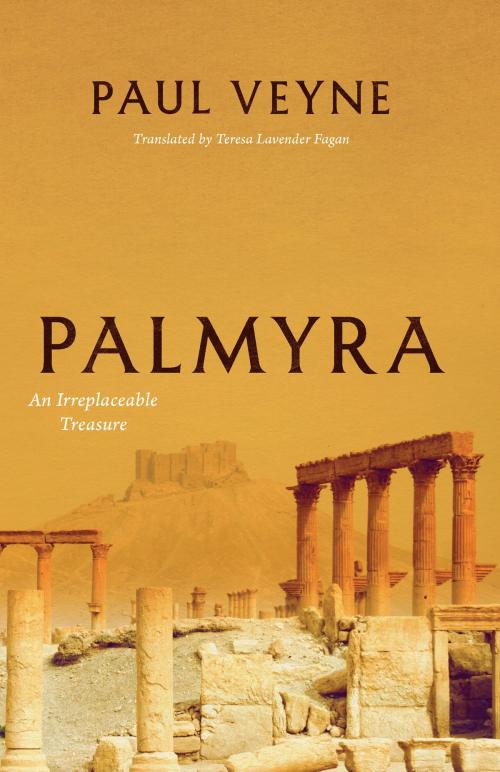| Author: | Paul Veyne | ISBN: | 9780226452937 |
| Publisher: | University of Chicago Press | Publication: | April 26, 2017 |
| Imprint: | University of Chicago Press | Language: | English |
| Author: | Paul Veyne |
| ISBN: | 9780226452937 |
| Publisher: | University of Chicago Press |
| Publication: | April 26, 2017 |
| Imprint: | University of Chicago Press |
| Language: | English |
Located northeast of Damascus, in an oasis surrounded by palms and two mountain ranges, the ancient city of Palmyra has the aura of myth. According to the Bible, the city was built by Solomon. Regardless of its actual origins, it was an influential city, serving for centuries as a caravan stop for those crossing the Syrian Desert. It became a Roman province under Tiberius and served as the most powerful commercial center in the Middle East between the first and the third centuries CE. But when the citizens of Palmyra tried to break away from Rome, they were defeated, marking the end of the city’s prosperity. The magnificent monuments from that earlier era of wealth, a resplendent blend of Greco-Roman architecture and local influences, stretched over miles and were among the most significant buildings of the ancient world—until the arrival of ISIS. In 2015, ISIS fought to gain control of the area because it was home to a prison where many members of the outlawed Muslim Brotherhood had been held, and ISIS went on to systematically destroy the city and murder many of its inhabitants, including the archaeologist Khaled al-Asaad, the antiquities director of Palymra.
In this concise and elegiac book, Paul Veyne, one of Palymra’s most important experts, offers a beautiful and moving look at the history of this significant lost city and why it was—and still is—important. Today, we can appreciate the majesty of Palmyra only through its pictures and stories, and this book offers a beautifully illustrated memorial that also serves as a lasting guide to a cultural treasure.
Located northeast of Damascus, in an oasis surrounded by palms and two mountain ranges, the ancient city of Palmyra has the aura of myth. According to the Bible, the city was built by Solomon. Regardless of its actual origins, it was an influential city, serving for centuries as a caravan stop for those crossing the Syrian Desert. It became a Roman province under Tiberius and served as the most powerful commercial center in the Middle East between the first and the third centuries CE. But when the citizens of Palmyra tried to break away from Rome, they were defeated, marking the end of the city’s prosperity. The magnificent monuments from that earlier era of wealth, a resplendent blend of Greco-Roman architecture and local influences, stretched over miles and were among the most significant buildings of the ancient world—until the arrival of ISIS. In 2015, ISIS fought to gain control of the area because it was home to a prison where many members of the outlawed Muslim Brotherhood had been held, and ISIS went on to systematically destroy the city and murder many of its inhabitants, including the archaeologist Khaled al-Asaad, the antiquities director of Palymra.
In this concise and elegiac book, Paul Veyne, one of Palymra’s most important experts, offers a beautiful and moving look at the history of this significant lost city and why it was—and still is—important. Today, we can appreciate the majesty of Palmyra only through its pictures and stories, and this book offers a beautifully illustrated memorial that also serves as a lasting guide to a cultural treasure.















